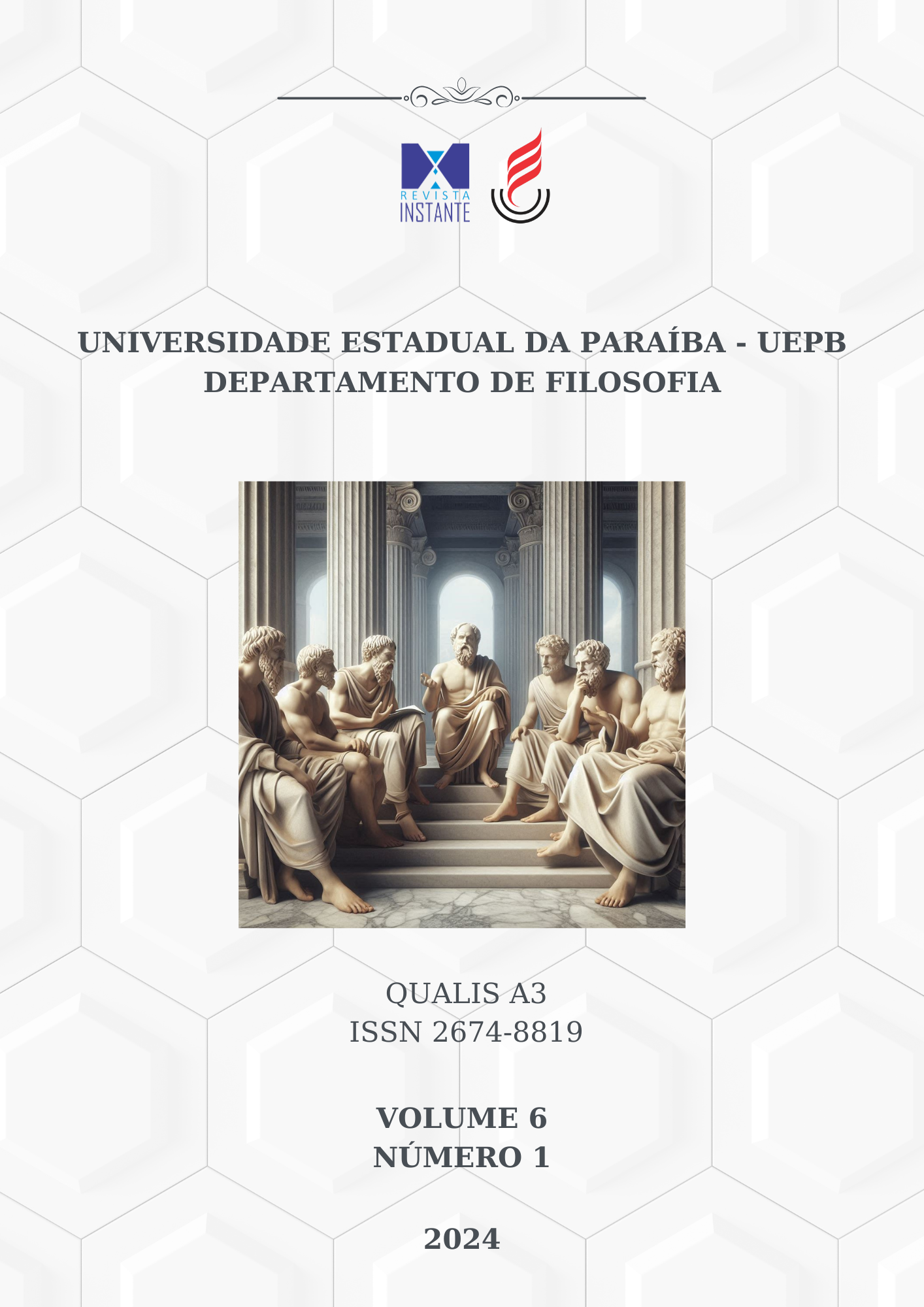A AMIZADE E A CONSTRUÇÃO DO MUNDO COMUM EM HANNAH ARENDT
Keywords:
friendship, Hannah Arendt, common world, politicsAbstract
It is the intention of this paper to analyze how the concept of friendship plays an important role in Hannah Arendt's political thought, insofar as it is linked to the idea of building a common world, recognized as the full meaning of the political activity. In order to do so, we will analyze what this commonality of the world means and how it depends on the idea of a plurality of human beings who share this world, which demands the capacity for dialogue (without canceling out tensions and dissent), respect and forgiveness. Friendship, therefore, can be considered as part of this openness to the world, even more so to what this world has of common, presenting itself, thus, as a constituent element of the political activity.
References
ADVERSE, Helton. Hannah Arendt, Leo Strauss e a filosofia política. Revista Estudos Filosóficos n.17, 2006, p.46-59. Disponível em: . Acesso em: 12/11/2023.
ARENDT, Hannah. A condição humana. Trad. Roberto Raposo Rio de Janeiro: Forense Universitária, 2004.
ARENDT, Hannah. A dignidade da política. Trad. Helena Martins, Frida Coelho, Antônio Abranches, César Almeida, Claudia Drucker e Fernando Rodrigues. Rio de Janeiro: Relume-Dumará, 2002.
ARENDT, Hannah. A promessa da política. Trad. Pedro Jorgensen Jr. Rio de Janeiro: Difel, 2008.
ARENDT, Hannah. Homens em tempos sombrios. Trad. Denise Bottmann. São Pulo: Companhia das Letras, 2021.
AGUIAR, Odílio Alves. Filosofia e política no pensamento de Hannah Arendt. Fortaleza: UFC, 2001.
AGUIAR, Odílio Alves. A amizade como amor mundi em Hannah Arendt. O que nos faz pensar, [S.l.], v. 19, n. 28, dec. 2010, p. 131-144. Disponível em: <http://www.oquenosfazpensar.fil.puc-rio.br/index.php/oqnfp/article/view/315>. Acesso em: 10/11/2023.
CHIBA, Shin. Hannah Arendt on love and the political: love, friendship, and citizenship. The Review of Politics, Vol 57, N. 3, Summer, 1995, pp. 505- 535.
DISCH, Lisa jane. Hannah Arendt and the limits of philosophy. New York: Cornell University Press,1996.
DUARTE, André. Poder, violência e revolução no pensamento político de Hannah Arendt. Cadernos de Filosofia Alemã: Crítica e Modernidade, Vol-2, N.3, 2016, pp. 13-27.
ROVIELLO, Anne-Marie. Senso comum e modernidade em Hannah Arendt. Lisboa. Instituto Piaget, 1987.
VALLÉE, C. Hannah Arendt: Sócrates e a questão do totalitarismo. Lisboa: Instituto Piaget, 1999.
VILLA, Dana. Socratic citizenship. New Jersey. Princeton University Press, 2001.










